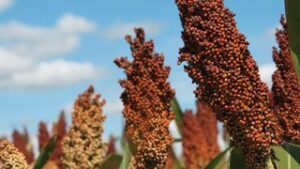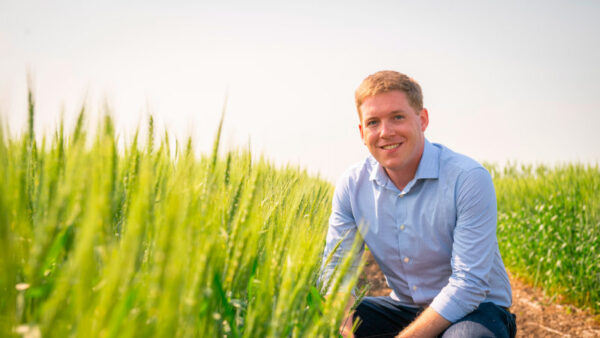Tailored to seed professionals, industry news delivers the people, research, business and product news you need to know.
Bayer: Bayer announced that the company has closed the previously announced transaction with Ginkgo Bioworks to begin a multi-year strategic partnership to accelerate research and development of biological products for agriculture. The transaction includes the divestment of Bayer’s West Sacramento Biologics Research & Development site, and its internal discovery and lead optimization platform. With the close of this transaction, the Biologics business, which is part of Bayer’s Crop Science Division, will also be able to further engage the open innovation ecosystem and build upon its leading position as partner of choice for innovators and scientists around the world.
Kansas State University: Researchers in a Kansas State University innovation lab that develops technologies to improve the resiliency of sorghum and millet production have received $750,000 to spur the crops’ production and value in Madagascar. Officials with the Feed the Future Innovation Lab for Collaborative Research on Sorghum and Millet (SMIL) said the project will take a look at every aspect of the value chain, from production in farmer’s fields to its eventual use in food and other products, in hopes of addressing the crippling effects of climate and drought in that country’s sorghum industry.
East-West Seed: Forty years ago, East-West Seed was founded by Simon N. Groot to develop quality seeds specifically for use in tropical climates. The first research and breeding program was established in the Philippines in 1982. Since then, East-West Seed has expanded across Asia and to Africa and Latin America. They now serve 23 million farmers in 70 countries with 973 improved varieties of 60 vegetable crops. Guiding farmers on agricultural techniques has been a part of East-West Seed since the beginning. In 2016, East-West Seed Knowledge Transfer Foundation was registered as a separate legal entity to focus solely on training smallholder farmers. In honor of their 40th anniversary, East-West Seed has published a new book, 40 Farmers, 40 Years of East-West Seed, and has created four short videos celebrating the farmers who are at the heart of their work.
James Hutton Institute: Scientists at James Hutton Institute have been awarded over £13million from the Scottish Government’s Just Transition fund to establish two pioneering action-based research science projects in the North East of Scotland. HydroGlen and theJust Transition Hub will focus on providing sustainable solutions to Scotland’s future food, environmental and water security concerns. HydroGlen is a green hydrogen-powered farming community pilot based at the Institute’s research farm at Glensaugh in Aberdeenshire. Through the development of renewable-generated electricity, HydroGlen will support the energy needs of both the farm and its community of seven associated households. It will provide a scalable and replicable concept for farming and other rural communities to demonstrate how to become self-reliant, net-zero carbon energy producers and exporters. HydroGlen will demonstrate how 100% of the community’s electricity, heating and transport fuel energy requirements can be self-generated renewably.
Lesaffre: Lesaffre has acquired Recombia Biosciences, a San Francisco Bay Area based biotechnology company centered on technology licensed from Stanford University, according to a release. The acquisition builds on the strategic partnership created between the companies in 2020 to heighten Recombia Biosciences’ genome-editing technologies and further the development of yeasts for the sustainable production of fermented ingredients. The collaboration marked Lesaffre’s first step into the Synthetic Biology world. Throughout the partnership, the companies have joined forces to create and develop new yeast strains and optimize the production of various biosourced ingredients and biofuels.
Seed World Group: Seed World Group — the parent company of European Seed — has won three agriculture journalism awards at the Canadian Farm Writers’ Federation (CFWF) awards which happened in Regina, Sask., on Oct. 1. The awards ceremony was held in conjunction with the CFWF annual conference. Marc Zienkiewicz, Sonja Begemann, Ashley Robinson and Alex Martin won silver in the electronic media, video category for the Seed Speaks episode “Why do GMOs Have an Image Problem?” Marc Zienkiewicz won silver in the electronic media, audio category for the Germination podcast “How 3 Numbers and 2 Letters Changed the Canola Game.” Ashley Robinson won silver in the current affairs, feature category for the Spud Smart story “The Regenerative Ag Debate.” The winners were chosen by 22 judges from across Canada, the United States and the United Kingdom.
KWS: Seed specialist KWS recently launched “TraitWay,” a website that provides information about available native traits, in addition to guidance on the process of obtaining a simple license.
The balance of sharing innovation while maintaining adequate intellectual property (IP) protection is essential to continue the development of higher performing plant varieties. KWS believes that plant breeding innovation is crucial to help solve the agricultural challenges felt across the world, including climate change, an increase in food demand and political requirements, according to a release.
The World Farmers’ Organisation (WFO) and the International Seed Federation (ISF): WFO and ISF recently announced their alliance to position farmers at the forefront of the movement towards a more sustainable and climate-resilient food system.
“The Climakers” initiative will be supported by ISF for the next two years. The initiative will collect and scientifically validate “on-the-ground practices by farmers to mitigate and adapt to climate change,” according to a release.
Workshops will be conducted in various regions, including Europe, Africa, Asia and the Pacific, Latin America and the Caribbean, to grow the knowledge base, focused on farmers’ practical field experience that can be replicated and scaled up to a broader level.
A survey conducted by WFO in 2021 found that 82% of farmers believed new, improved varieties were crucial to combat climate change and promote sustainability for food systems.
SUBMISSIONS ARE WELCOME. EMAIL US AT NEWS@SEEDWORLDGROUP.COM.
Read More from the November Issue:












